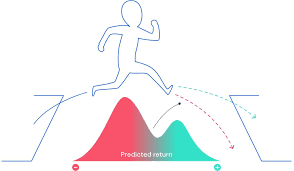Source: techxplore.com
A team of researchers from DeepMind, University College and Harvard University has found that lessons learned in applying learning techniques to AI systems may help explain how reward pathways work in the brain. In their paper published in the journal Nature, the group describes comparing distributional reinforcement learning in a computer with dopamine processing in the mouse brain, and what they learned from it.
Prior research has shown that dopamine produced in the brain is involved in reward processing—it is produced when something good happens, and its expression results in feelings of pleasure. Some studies have also suggested that the neurons in the brain that respond to the presence of dopamine all respond in the same ways—an event causes a person or a mouse to feel either good or bad. Other studies have suggested that neuronal response is more of a gradient. In this new effort, the researchers have found evidence supporting the latter theory.
Distributional reinforcement learning is a type of machine learning based on reinforcement. It is often used when designing games such as Starcraft II or Go. It keeps track of good moves versus bad moves and learns to reduce the number of bad moves, improving its performance the more it plays. But such systems do not treat all good and bad moves the same—each move is weighted as it is recorded and the weights are part of the calculations used when making future move choices.
Researchers have noted that humans appear to use a similar strategy to improve their level of play, as well. The researchers in London suspected that the similarities between the AI systems and the way the brain carries out reward processing were likely similar, as well. To find out if they were correct, they carried out experiments with mice. They inserted devices into their brains that were capable of recording responses from individual dopamine neurons. The mice were then trained to carry out a task in which they received rewards for responding in a desired way.
The mouse neuron responses revealed that they did not all respond the same way, as prior theory had predicted. Instead, they responded in reliably different ways—an indication that the levels of pleasure the mice were experiencing were more of a gradient, as the team had predicted.


